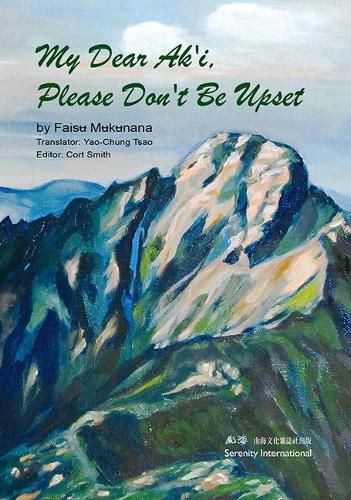Readings Newsletter
Become a Readings Member to make your shopping experience even easier.
Sign in or sign up for free!
You’re not far away from qualifying for FREE standard shipping within Australia
You’ve qualified for FREE standard shipping within Australia
The cart is loading…






Faisu Mukunana portrays various facets of the Tsou’s centuries-old way of life prior to the 1950s and before the drastic modernization and urbanization that impacted them. She wishes to convey some messages to her grandpa, to current and future Tsou generations, to the Han Taiwanese, and to the relatively recent Chinese immigrants who fled from China to Taiwan after the Second World War.
Faisu, in her opening story bearing the same title as the book, talks to her grandfather at his grave. Through this spiritual communication, Faisu allows us an emotional and intimate glimpse into the lives of the native Tsou people of Taiwan, thus drawing us into the interesting anthropological lore contained in the chapters that follow. The similarities of Tsou spiritual beliefs and practices with those of many native Americans are striking.
In her talk with her Ak'i (grandfather), Faisu expresses guilt that she and her family ‘forgot’ about him for 51 years, never sweeping or visiting his grave. She mentions to him that she realizes it had not been Tsou custom in the past to attend to the dead so devotedly and she seems to wonder about it, to the extent of apologizing to her Ak'i for seeming so ‘uncaring.’ Indeed, the reader may have those same thoughts. The parallels that may provide some explanation, both for the general reader and for other scholars on these subjects. For example, the Chumash of Southern California traditionally ‘forgot’ about the newly dead in order to help their dead break from the emotional ties to their past life and physical pleasures. In Chumash tradition, Scorpion Woman assists souls, toward the end of their journey on the ‘path of the dead, ’ by stinging them so they will forget the life they just left and be content while waiting in the celestial paradise to be reborn. Perhaps, like the Chumash, the Tsou deliberately ignored their dead, thus assisting them to continue on the ‘path of the dead’ toward reincarnation, when their family might see them again. This is a topic that would be fascinating to learn more about from the Tsou people.
$9.00 standard shipping within Australia
FREE standard shipping within Australia for orders over $100.00
Express & International shipping calculated at checkout
Faisu Mukunana portrays various facets of the Tsou’s centuries-old way of life prior to the 1950s and before the drastic modernization and urbanization that impacted them. She wishes to convey some messages to her grandpa, to current and future Tsou generations, to the Han Taiwanese, and to the relatively recent Chinese immigrants who fled from China to Taiwan after the Second World War.
Faisu, in her opening story bearing the same title as the book, talks to her grandfather at his grave. Through this spiritual communication, Faisu allows us an emotional and intimate glimpse into the lives of the native Tsou people of Taiwan, thus drawing us into the interesting anthropological lore contained in the chapters that follow. The similarities of Tsou spiritual beliefs and practices with those of many native Americans are striking.
In her talk with her Ak'i (grandfather), Faisu expresses guilt that she and her family ‘forgot’ about him for 51 years, never sweeping or visiting his grave. She mentions to him that she realizes it had not been Tsou custom in the past to attend to the dead so devotedly and she seems to wonder about it, to the extent of apologizing to her Ak'i for seeming so ‘uncaring.’ Indeed, the reader may have those same thoughts. The parallels that may provide some explanation, both for the general reader and for other scholars on these subjects. For example, the Chumash of Southern California traditionally ‘forgot’ about the newly dead in order to help their dead break from the emotional ties to their past life and physical pleasures. In Chumash tradition, Scorpion Woman assists souls, toward the end of their journey on the ‘path of the dead, ’ by stinging them so they will forget the life they just left and be content while waiting in the celestial paradise to be reborn. Perhaps, like the Chumash, the Tsou deliberately ignored their dead, thus assisting them to continue on the ‘path of the dead’ toward reincarnation, when their family might see them again. This is a topic that would be fascinating to learn more about from the Tsou people.